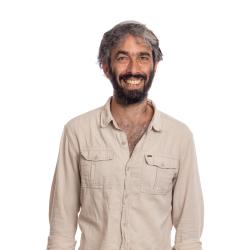Job Titles
Honorary Research Associate, McDonald Institute for Archaeological Research

General Info
Not available for consultancy
Department of Archaeology
Dr. Daniel Fuks is a scholar who has made significant contributions to archaeobotany and the study of ancient agriculture during his time as a postdoctoral researcher at Cambridge from 2020-2024. His innovative work on ancient dung as a source of environmental and agricultural data has opened new avenues for understanding past agricultural strategies and their resilience. This research is crucial for developing models that can inform current agricultural practices, particularly in regions vulnerable to climate change.

Postal Address:
Department of Archaeology
Downing Street
CB2 3DZ Cambridge
Information provided by:



© 2024 University of Cambridge